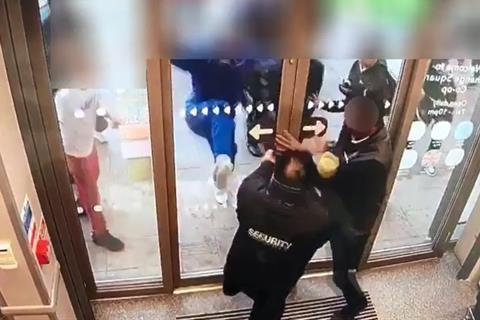
Serial or abusive shoplifters are to face tougher punishments with the government confirming new action to crack down on retail crime.
Under an amendment to the Criminal Justice Bill, assaulting a retail worker will be made a standalone criminal offence in England and Wales, in a move aimed to curb soaring levels of violence, abuse and theft against shopworkers.
Perpetrators could be sent to prison for up to six months, receive an unlimited fine and be banned from going back to the shop where they committed their crimes, with Criminal Behaviour Orders barring them visiting specific premises.
Breaching an order is also a criminal offence and carries a five-year maximum prison sentence. For the most serious cases of assault, such as causing grievous bodily harm with intent, offenders could face a life sentence.
The Grocer understands the amendment to the bill will receive royal assent by the summer.
Government is also stepping up action to clamp down on offenders who repeatedly target the country’s high streets, with serial offenders forced to wear tags to track their movements.
These tags would be a constant and physical reminder to offenders that the Probation Service can find out where they have been and when, and that they risked being sent to prison if they refused to obey the rules, the Home Office said.
Under the amendment, if an offender is found guilty of assaulting staff three times, or is sentenced for shoplifting on three separate occasions, they should be made to wear a tag as part of any community order.
Ahead of the legislation coming in, the government will partner with a police force to pilot a bespoke package of community sentencing measures that can be used by judges to tackle high levels of shoplifting.
The government is also ramping up the use of facial recognition technology to help catch perpetrators and prevent shoplifting in the first place, backed by a £55.5m investment over the next four years.
This will include £4m for bespoke mobile units that can be deployed to high streets across the country with live facial recognition used in crowded areas to identify people wanted by the police – including repeat shoplifters.
The mobile units will take live footage of crowds in towns and on high streets, comparing images with specific people wanted by the police or banned from that location. Police in the area will then be alerted so they can track down these offenders.
“Since 2010, violent and neighbourhood crime in England and Wales has fallen dramatically, showing our plan to keep our streets safe is working,” said prime minister Rishi Sunak. “Yet shoplifting and violence and abuse towards retail workers continues to rise.
“I am sending a message to those criminals – whether they are serious organised criminal gangs, repeat offenders or opportunistic thieves – who think they can get away with stealing from these local businesses or abusing shopworkers, enough is enough.
“Our local shops are the lifeblood of our communities, and they must be free to trade without the threat of crime or abuse.”
The retail crime crackdown follows a long campaign from some of the biggest retailers, trade bodies and unions, calling for more action to better protect their staff.
“After relentless campaigning for a specific offence for assaulting retail workers, the voices of the three million people working in retail are finally being heard,” said BRC CEO Helen Dickinson.
“This announcement sends a clear message that abusive behaviour will not be tolerated and it is vital the police use this new legislation to step up their response to incidents.”
ACS CEO James Lowman said: “Our members face theft, violence and abuse on a daily basis, with over five million incidents of theft recorded over the last year alone along with over 76,000 incidents of violence. Nobody should have to come to work and face what retailers and their colleagues have faced over the last year.
“The creation of a standalone offence for assaulting a shopworker is an important step forward, but it must be backed by a joined-up approach from local forces, Police and Crime Commissioners and central government to ensure that when a crime is reported by a retailer, it is followed up properly and those responsible are taken out of the cycle of reoffending.”
The Co-op, which also revealed earlier this year that it had experienced record levels of theft and violence in 2023, has welcomed the announcement.
“As a Co-op, we exist to make a genuine difference for our five million member owners and the issues they care about,” said Co-op CEO Shirine Khoury-Haq.
“This change shows the true power of co-operation, with our Co-op member-owners having called for this urgent change to ensure no shopworker should face violence or abuse as part of their job.”
The National Business Crime Centre, which is a police-led national co-ordinating body for crimes against business, explained the greater impact the introduction of a specific offence would have against existing powers.
“At the moment any assault against shopworkers is recorded under a generic crime category, which means it is difficult to assess the true extent of the problem,” said Patrick Holdaway, NBCC lead and City of London Police superintendent.
“By recording violence against shopworkers as a specific offence, we will have a much clearer picture of how many incidents are happening and better understand the level of police and partner resources needed to tackle the issue. The NBCC will work with police, partners and retailers to start to build a national intelligence picture as the data is captured.”



















No comments yet